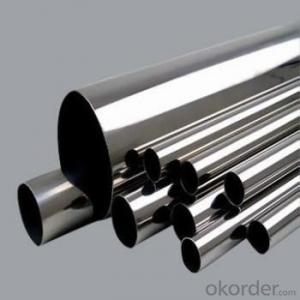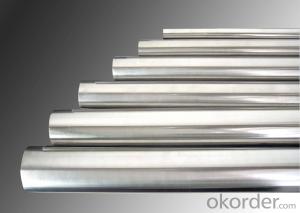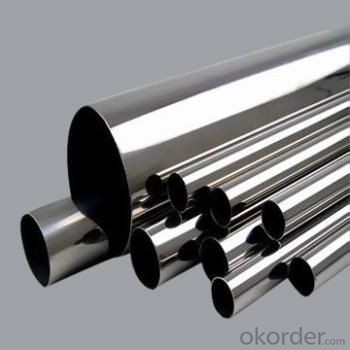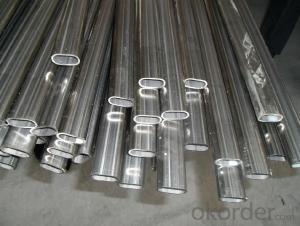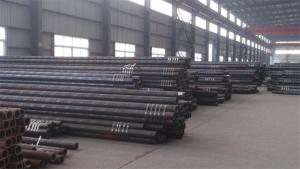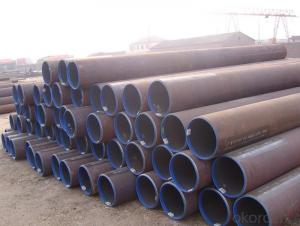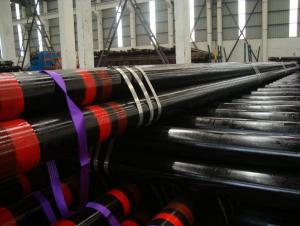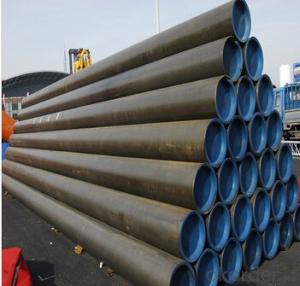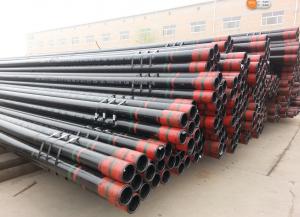Round Section Varnished Coated Seamless Carbon Steel Pipe For Oil&Gas Use
- Loading Port:
- Tianjin
- Payment Terms:
- TT OR LC
- Min Order Qty:
- 35 m.t.
- Supply Capability:
- 5000 m.t./month
OKorder Service Pledge
OKorder Financial Service
You Might Also Like
Specification
Structure :
Seamless pipe is formed by drawing a solid billet over a piercing rod to create the hollow shell. As the manufacturing process does not include any welding, seamless pipes are perceived to be stronger and more reliable. Historically seamless pipe was regarded as withstanding pressure better than other types, and was often more easily available than welded pipe.
Main Features :
• High manufacturing accuracy
• High strength
• Small inertia resistance
• Strong heat dissipation ability
• Good visual effect
• Reasonable price
FAQ :
A. How is the quality of your products?
Our products are manufactured strictly according to national and internaional standard, and we take a test on every pipe before delivered out. If you want see our quality certifications and all kinds of testing report, please just ask us for it.
Guaranteed: If products’ quality don’t accord to discription as we give or the promise before you place order, we promise 100% refund.
B. How about price?
Yes, we are factory and be able to give you lowest price below market one, and we have a policy that “ for saving time and absolutely honest business attitude, we quote as lowest as possible for any customer, and discount can be given according to quantity”,if you like bargain and factory price is not low enough as you think, just don’t waste your time.Please trust the quotation we would give you, it is professional one.
C.Why should you chose us?
Chose happens because of quality, then price, We can give you both.Additionally, we can also offer professional products inquiry, products knowledge train(for agents), smooth goods delivery, exellent customer solution proposals.Our service formula: good quality+good price+good service=customer’s trust
SGS test is available, customer inspection before shipping is welcome, third party inspection is no problem.
Any question, pls feel free to contact us !
Product image:
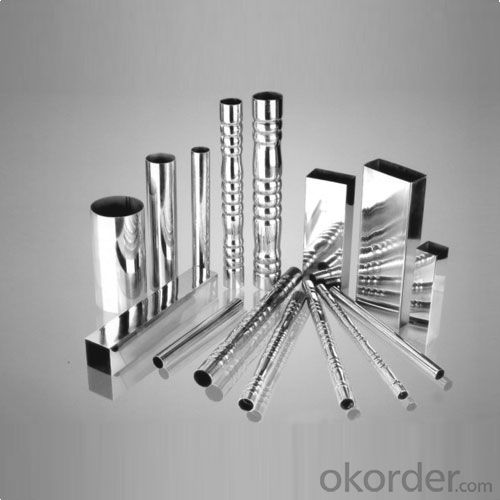
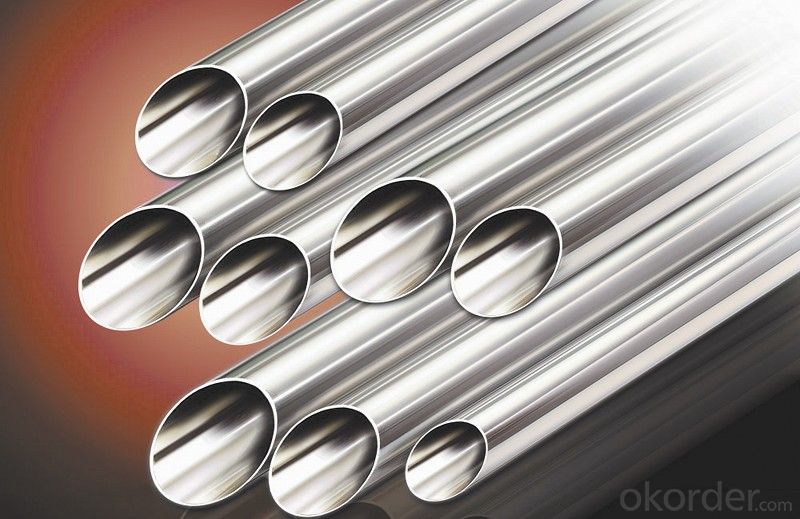
Company Information:
CNBM International Corporation (CNBM International) is the most important trading platform of CNBM Group Corporation, a state-owned company under the direct supervision of State-owned Assets Supervision and Administration Commission of the State Council.
Since 2004, the trading volume of CNBM International has been doubled in 5 successive years owing to the support of superior corporations and effort of all staff. Meanwhile, we have established strategic partnerships with hundreds of domestic manufacturers and sound business relations with clients from over 120 countries. Currently, we have wholly-owned overseas subsidiaries and branches in 5 countries with a view to realize localization, which also represents an essential progress in our globalization target.
In line with the business, CNBM International launched E-business platform Okorder.com.Our goal is to transform CNBM International into the global leading brand in building materials industry within 3 to 5 years through innovation and reform, by strengthening the overall management of supply chain, developing and cultivating both domestic and overseas market, improving the procedure and information system, enhancing the ability to organize resources and to provide value-added services under a professional team and a learning organization.
- Q: How are steel pipes used in the construction of railways and transportation systems?
- Steel pipes are commonly used in the construction of railways and transportation systems for various purposes. One major use of steel pipes in these applications is for the construction of bridges and tunnels. Steel pipes are often used as structural components in the construction of bridges, providing support and stability to the overall structure. In tunnels, steel pipes are used as ventilation shafts, allowing for the circulation of air and removal of fumes, thus ensuring the safety of passengers and workers. Additionally, steel pipes are used for the construction of railway tracks. They are used as supports for the tracks, providing a stable base for the trains to travel on. Steel pipes used in railway tracks are typically coated or galvanized to protect them from corrosion and ensure their longevity. Moreover, steel pipes are used for drainage systems in railway stations and transport hubs, ensuring proper water management and preventing flooding. Another important application of steel pipes in transportation systems is for the construction of signposts and streetlights. Steel pipes are often used as the main structural element in these structures, providing strength and durability. They can be easily fabricated and shaped to meet the specific design requirements, making them a popular choice for these applications. Overall, steel pipes play a crucial role in the construction of railways and transportation systems by providing structural support, ensuring proper ventilation, facilitating drainage, and serving as the main components in various structures. Their strength, durability, and versatility make them an ideal choice for these applications, contributing to the safe and efficient operation of transportation networks.
- Q: Are steel pipes suitable for underground cable protection?
- Yes, steel pipes are suitable for underground cable protection. Steel pipes provide excellent mechanical strength and durability, protecting cables from external forces such as ground movement or accidental damage. They also offer resistance to corrosion, making them a reliable choice for long-term cable protection in underground installations.
- Q: How are steel pipes used in the construction of water supply systems?
- Steel pipes are commonly used in the construction of water supply systems due to their durability, strength, and resistance to corrosion. They are used for transporting water from sources such as reservoirs and wells to treatment plants, and then distributing it to homes, buildings, and other structures. Steel pipes are also used for transporting wastewater and sewage. Their ability to withstand high pressure and extreme weather conditions makes them ideal for ensuring a reliable and long-lasting water supply infrastructure.
- Q: How do steel pipes differ from other types of pipes?
- Steel pipes possess several distinct characteristics that set them apart from other pipe types. Primarily, their strength and durability are well-known. They exhibit remarkable resistance to heat, pressure, and corrosion, rendering them suitable for numerous applications. Additionally, their robustness allows them to bear heavy loads and offer an extended service life. One distinguishing feature of steel pipes lies in their versatility. They can be manufactured in various shapes and sizes to fulfill specific project requirements. This adaptability has contributed to their popularity across a diverse range of industries, including construction, oil and gas, water treatment, and manufacturing. Moreover, steel pipes exhibit exceptional thermal conductivity, facilitating efficient heat transfer between different areas. Consequently, they prove suitable for applications involving heating and cooling systems, as well as the transportation of hot fluids or gases. Furthermore, steel pipes are renowned for their resistance to fire. They possess a high melting point and are not easily ignited or conducive to the spread of flames. This characteristic is particularly critical in applications where fire safety is a concern, such as buildings or industrial facilities. Lastly, although steel pipes may entail a higher initial cost compared to other pipe types, their long-term benefits, such as durability and low maintenance requirements, often outweigh the initial investment. Additionally, steel pipes are highly recyclable, making them an environmentally friendly choice. In summary, steel pipes stand out due to their strength, durability, versatility, excellent thermal conductivity, fire resistance, and recyclability. These remarkable qualities establish steel pipes as the preferred option for a wide range of applications across various industries.
- Q: How are steel pipes used in seaport infrastructure?
- Steel pipes are extensively used in seaport infrastructure for various purposes such as constructing piers, offshore platforms, and docking facilities. They are commonly used for building underwater foundations, pilings, and support structures that provide stability and strength to the port infrastructure. Steel pipes are also used in the construction of pipelines, drainage systems, and water supply networks within the seaport, ensuring efficient transportation of goods and materials. Overall, steel pipes play a crucial role in maintaining the structural integrity and functionality of seaport infrastructure.
- Q: How are steel pipes used in the renewable energy industry?
- Steel pipes are used in the renewable energy industry for various purposes such as transporting fluids, gases, and steam in thermal power plants, geothermal installations, and solar thermal systems. They are also utilized in the construction of wind turbine towers and the transmission of electricity from renewable energy sources.
- Q: What are the different grades of steel used in pipes?
- The different grades of steel used in pipes include carbon steel, alloy steel, stainless steel, and duplex stainless steel.
- Q: What is the lifespan of steel pipes?
- The lifespan of steel pipes can vary depending on various factors such as the quality of the steel used, the environment in which they are installed, and the maintenance and care given to them. However, generally speaking, steel pipes can have a lifespan ranging from 20 to 100 years or even longer if properly maintained and protected against corrosion.
- Q: What are the different types of supports used for steel pipes?
- Some common types of supports used for steel pipes include pipe hangers, pipe clamps, pipe saddles, and pipe shoes. These supports are designed to provide stability, prevent movement, and distribute the weight of the pipes, ensuring they are properly supported and protected.
- Q: Are steel pipes resistant to chemicals?
- Yes, steel pipes are generally resistant to chemicals. They have excellent corrosion resistance properties, making them suitable for transporting various chemicals in industries such as oil and gas, chemical processing, and wastewater treatment. However, the level of resistance can vary depending on the specific type of chemical and the grade of steel used. In some cases, additional protective coatings may be required to enhance chemical resistance.
Send your message to us
Round Section Varnished Coated Seamless Carbon Steel Pipe For Oil&Gas Use
- Loading Port:
- Tianjin
- Payment Terms:
- TT OR LC
- Min Order Qty:
- 35 m.t.
- Supply Capability:
- 5000 m.t./month
OKorder Service Pledge
OKorder Financial Service
Similar products
Hot products
Hot Searches
Related keywords
